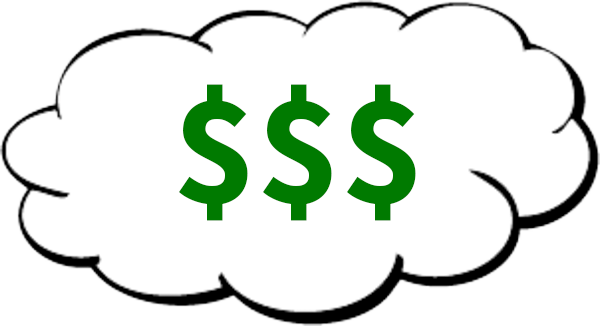Online Money Security
20 Nov 2015My parents aren’t super comfortable with technology. They didn’t grow up with computers and they still don’t use them that much. My mom only recently got a smartphone and – besides typical phone stuff – only uses Facebook. It still blows their minds how much we can do online. From the comfort of home we can see pictures from around the world, deposit checks, check the detailed history of a bank account, check their retirement plans and Social Security benefits, send other people money, and see lots of pictures of cats.

Is money safe in the cloud!?
Given their unfamiliarity with technology they do have one very legitimate concern that comes up frequently whenever financial matters are involved: is this safe? The answer: it depends. Threats are constantly evolving, but you can take steps to keep yourself protected.
-
Practice good basic computer security. I’ve written about how to improve your computer security. Those are helpful here, specifically the tips on passwords and two-factor authentication which basically boil down to don’t reuse passwords and enable two-factor authentication wherever possible.
-
Register for an account with the IRS and Social Security Administration (SSA). This is a clear case against the argument “if I don’t create an account, I’m safe.” Why these two accounts in particular? A fraudster can create accounts in your name and then file tax returns with the IRS and claim your benefits with the SSA. To add to this trouble privacy regulations (intended to protect you) will protect the fraudsters instead! Unfortunately this is not unfounded fear-mongering. Security expert Brian Krebs wrote about a victim who had an IRS account created by fraudsters and the subsequent harrowing experience. NOTE: The IRS has temporarily suspended creating online accounts in light of the unauthorized fraudulent activity described in the post by Krebs. So for now, just sign up for an account with the SSA.
-
Keep an eye on your credit with CreditKarma. It’s good to keep an eye on your credit report. CreditKarma is an easy (and free) way to keep tabs on your credit. If someone opens a credit card in your name, you want to know as soon as possible. CreditKarma will email you if it finds a new account listed on your credit report. CreditKarma will also give you your credit score, which is a great to know given its large impact on interest rates of loans.
-
Aggregate all your finances with Mint. Mint makes tracking your bank accounts, credit cards, investment accounts, and loans simple by putting all that information in one place. I think asking someone to log into multiple websites to verify everything looks good is a harder sell than asking them to check everything in a single place. Mint also gives you an ever useful high-level view of your financial situation.
-
Set up a firewall checking account. We share and use our checking account information for all sorts of things like PayPal, Venmo, electronic rent payment, and online credit card payments to name a few. A firewall checking account is an account that you connect all these external services (also potential attack vectors) to. You keep only the amount you need in this account so in case of a compromise, you don’t lose access to much money. Behind the firewall account, you can safely keep the rest of your money in other accounts that are not externally exposed. You can read more about firewall checking accounts on the MyMoneyBlog.
Hopefully that gets you feeling more comfortable about money matters online. If I got something terribly wrong or somehow offended you, feel free to send me an angry tweet!